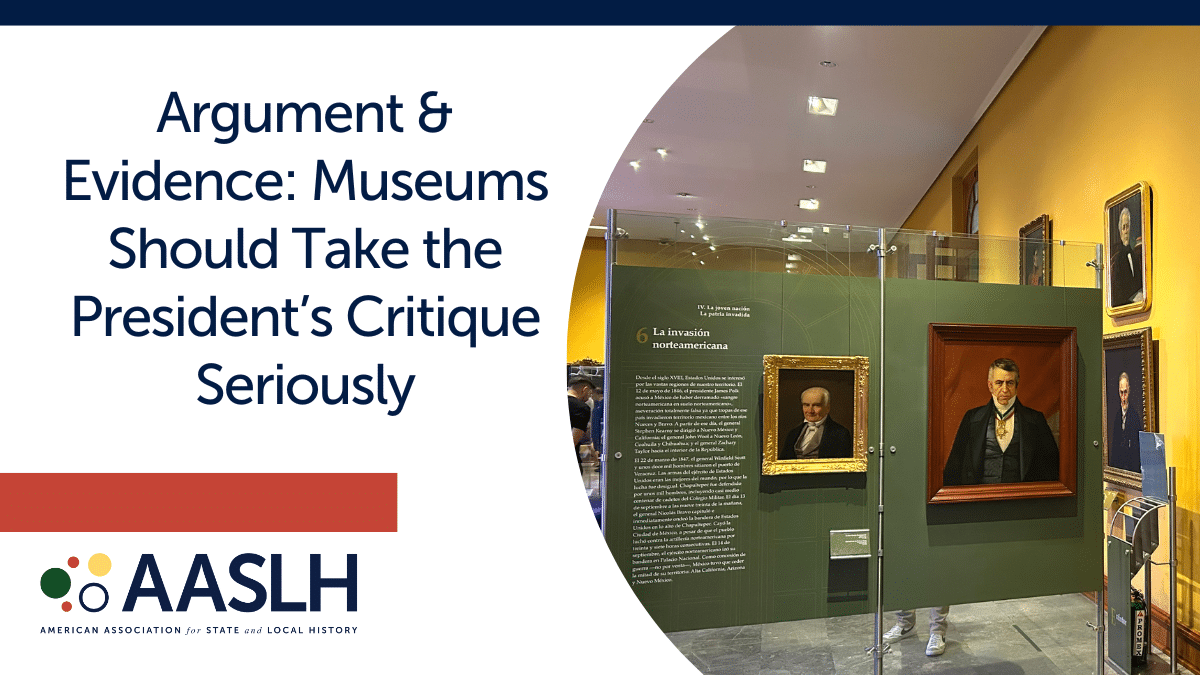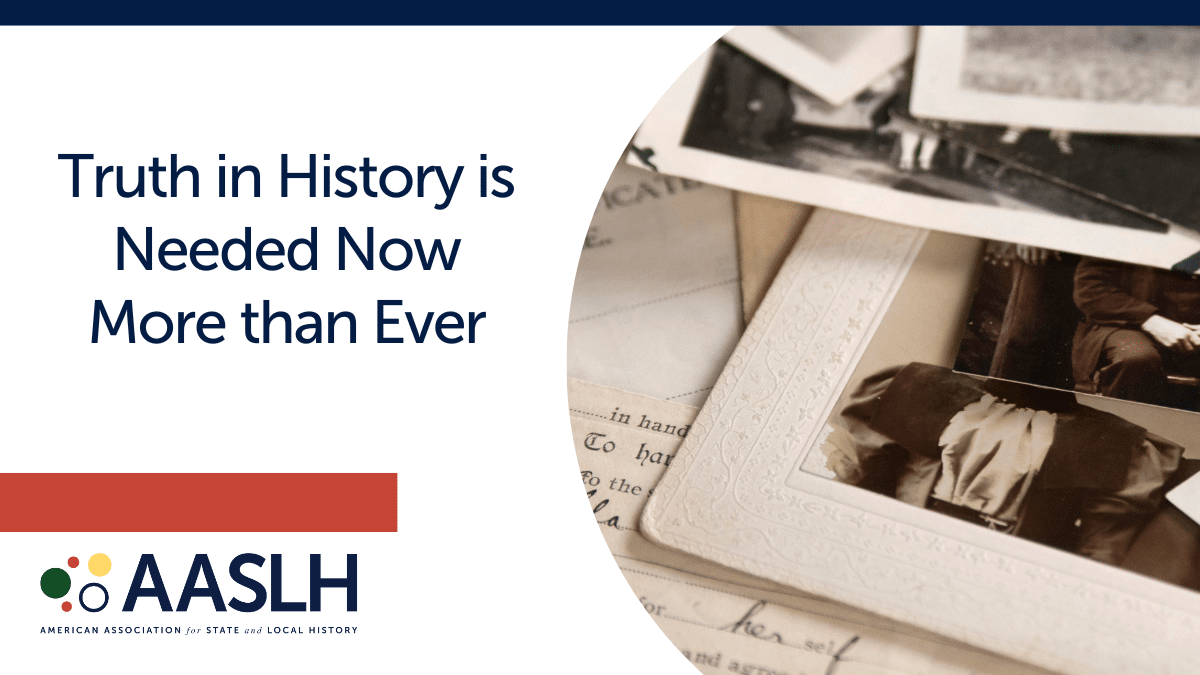
By Aimee E. Newell, Ph.D., Executive Director, Luzerne County Historical Society, Wilkes Barre, PA
I met someone a couple of months ago who, after I explained what I do, said, “Why don’t you have a better job?” Now, admittedly, they prefaced this question by calling it a backhanded compliment, and told me that I was so educated, so articulate, and had such varied museum experience, so… “Why don’t you have a better job?”
I was taken aback by the question. I managed to reply, “How would you define ‘better’?” The conversation didn’t really go anywhere after that, but the question has stuck with me. And, I remain a little offended, no matter how many nice things this person said to me in preface to the question. Do we really want to define particular museum jobs as “better” based on geographical location, salary size, or annual budget level (which is what this person seemed to be implying)?
I am the Executive Director of the Luzerne County Historical Society. Admittedly, it is in Wilkes-Barre, Pennsylvania, with additional sites in nearby Wyoming and Forty Fort, Pennsylvania, none of which are the most glamorous or urban locations. For most of the eighteen months that I’ve lived here, when locals hear that I moved to the area from Boston, they ask, “You moved here? From Boston? Why?” When I started, the annual budget was $200,000 (I’ve managed to improve on that) and we have five buildings to care for and run with three full-time and two part-time staff (plus volunteers and interns). And did I mention that the organization had been without an executive director for three years before I started? The job is pretty much the definition of “challenging.”
My reasons for moving here, as well as the reasons that I think this is already a pretty good job, relate to the importance of small museums and to what staff with small museum experience might offer for medium and large museums later in their careers. In short, don’t count me – or any of my small museum counterparts – out based solely on the size of our institutions.
I won’t lie – I agonized over taking this job and moving away from Boston. It was one of the hardest decisions I’ve ever had to make. I am a native of Massachusetts and, except for a year and a half in Philadelphia early in my career, had lived my entire life there. I love Massachusetts. But, as I learned more about the Luzerne County Historical Society during the hiring process, I realized that I could make a real contribution here. So, one of the points that I wanted to make to this person is that those of us who choose to work at small museums are committed to the importance of local history. We believe in its relevance to our communities and to our society at large. Perhaps if more trained and experienced museum professionals chose the smaller institutions, we could make real progress in bringing necessary and vital change to museums throughout America – and in how Americans value history.
I have a Ph.D. in history and I am a semester away from completing an MBA. I spent twenty years working in curatorial roles at museums that were medium to large-sized. The Luzerne County Historical Society is the smallest museum that I have ever worked at. I realize that I am bucking the trend by moving from a larger museum to a small museum. Many of us work our way up from smaller institutions to larger ones. But who says there isn’t value in moving in the opposite direction?

Small museum directors wear many hats! Masquerading as Mr. Peanut in the LHS booth at the Fine Arts Fiesta.
I love the sheer variety that my job entails. Sure, I spend a lot of time doing executive director tasks – fundraising, attending board and committee meetings, serving as chief spokesperson and supervising the staff. I am a walking encyclopedia for the historical society’s budget figures and membership numbers on a daily basis. But I am able to balance these administrative and fundraising tasks with curatorial projects and program brainstorming. Small museum experience teaches you to don many hats (sometimes at the same time). You learn to prioritize, along with picking up a mind-boggling variety of new skills – quickly. I now have experience with persuading the IRS to waive penalty fees for filing a late Form 990, as well as with broken pipes, and editing a personnel handbook.
I love the problem-solving elements of my job. Our budget is tight, so when something goes wrong, or an opportunity comes up, it can mean making some tough decisions. This has made me more creative, as well as more open to unusual solutions and, surprisingly, more laid-back. It actually becomes easier to see the value in moving forward, rather than waiting for perfection. And it is a master class in learning that leaving a task or a phone call to the side for a day or two often resolves the issue altogether. Imagine what this experience would bring to a larger museum, should I choose to move on to one!
When I was confronted with the question, “Why don’t you have a better job?,” I replied, “How would you define ‘better’?” And, then I explained that when I was looking for my current job, a number of search committees and headhunters told me, “We selected two finalists and they both have previous executive director experience,” which I did not have at the time. Almost immediately, I regretted that answer. I wish I had explained how wonderful my current job is – how it challenges me every day, how I learn something new about myself, local history, and my community every day, how this job is making me a better director and a better person every day. I gain so much from working at a small museum and, I am giving so much – I know that I am making a difference, that I am helping this local historical society to become more sustainable and more relevant, so that it will be around even after I move on to my next “better” job to continue inspiring and educating its community.



